The Uganda Reforestation Project plans to plant 3 million trees in the next 3 years, starting in 2023, in the Bulindi district of Uganda. These trees will be in addition to the 1.3 million trees already planted in the region over the past 4 years. In total, that is approximately 1 tree for every 10 people in Uganda!
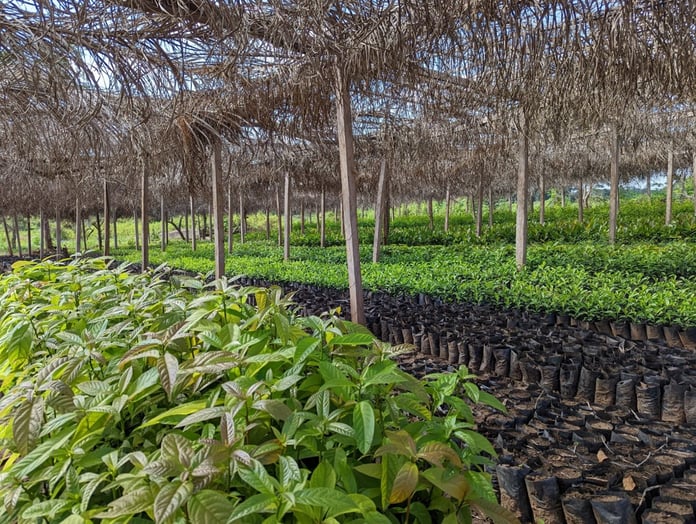
What are the puzzle pieces of the Uganda reforestation project
-
Local support and expertise
DGB Group’s objective is to develop and invest in carbon- and biodiversity-credit solutions to protect and restore biodiversity and ecosystems, conserve nature, and develop habitats. In the furtherance of this objective, DGB has partnered with local organisations in Uganda to scale the reforestation efforts in the Bulindi district to restore the rapidly deforested and degraded land.

The local organisations assist with various aspects of the project, including community engagement, community training, sourcing local suppliers of quality seeds and seedlings, and building the necessary infrastructure.
The local team is led by Dr McLennan, a world-class primatologist, who oversees the conservation of the resident Bulindi chimpanzees facing the loss of their habitat. Dr McLennan has set up an integrated plan to implement multiple benefits for the community stemming from the reforestation project.
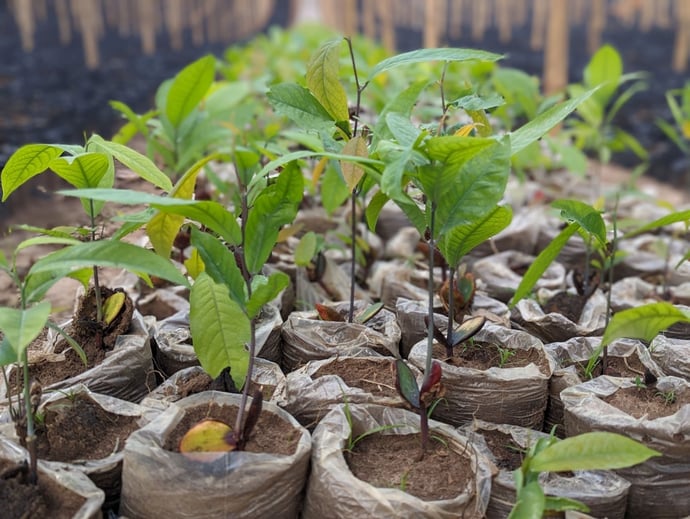
2. The trees
More than 10 different native species of trees and vegetation are sourced from the project’s constructed nurseries and local nurseries. Key factors that play a role in the success of the tree seedlings are quantity, quality, and availability. Having as many seeds as possible germinate in the most favourable weather conditions is essential to the success of the tree planting scheme. The coffee trees donated to local farmers, as well as existing farmlands, are intercropped with the native tree species to simulate a forest-like ecosystem, rejuvenate the soil, and provide a sustainable farming operation.

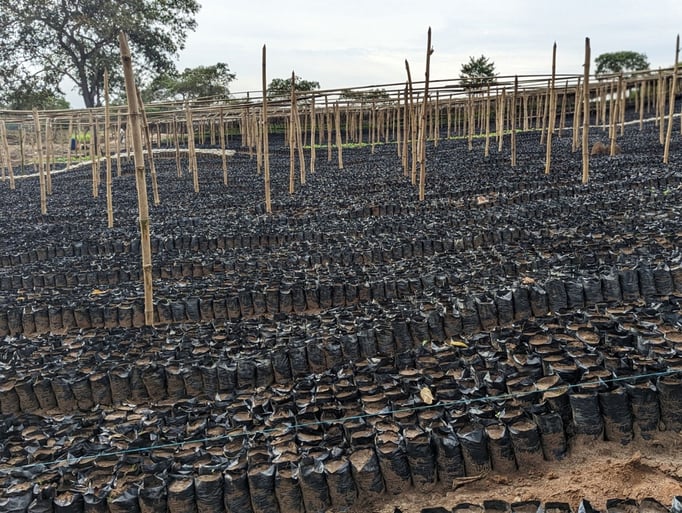
3. Infrastructure
The nurseries required to be constructed to supply the project with tree seedlings are built from local materials such as wood and palm leaves. The palm leaves provide shelter from the harsh sun and heavy rains. Water pumping and irrigation systems that are solar powered are installed to supply the nurseries with water.
The project also provides the necessary consumable supplies to the nurseries, like seed trays, tools for the workers, and fencing. Due to the location and nature of the project, it utilises mainly the existing domestic infrastructure with minimal additional infrastructure required to be built for staff office space.
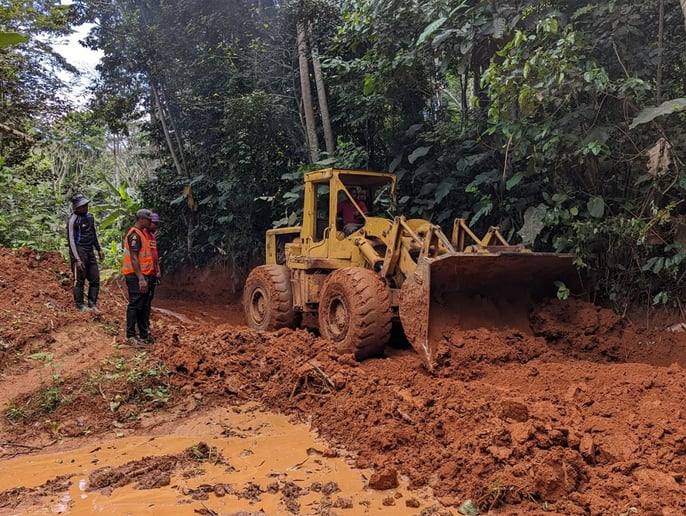
4. Benefits and incentives to the community
Community engagement, incentive, and benefit is key to the project's success. An evaluation is made to determine the needs of the local community, the challenges they face, and how such needs and challenges can be addressed through the project.
As part of the Uganda reforestation project, the local community are provided training on various aspects such as sustainable farming, entrepreneurial skills, chimpanzee behavior, and being environmentally conscious.
To incentivize the community to participate in the tree planting scheme and to help maintain the forest, parents receive funding designated for school aid, such as school fees, books, and school uniforms.
The seeds and tree seedlings that are sourced locally assist with forming strong local relationships and adding benefit and value to the community. Coffee tree seedlings and some other tree species are donated to the local farmers to expand their current farming. All coffee and other crop yields are for the benefit of the local farmer.
The project further provides a range of additional benefits to the community, such as additional enclosed boreholes for fresh drinking water, more energy-efficient cookstoves, and even the establishment of football teams.

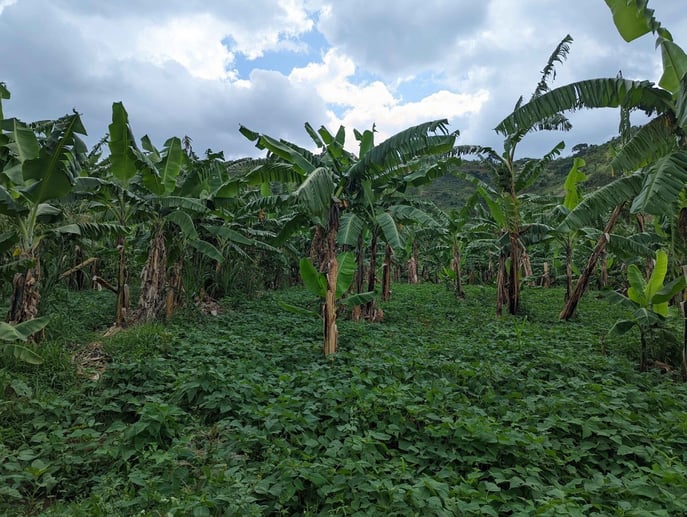
5. Benefits for the resident chimpanzees and the environment
As the natural habitat of the chimpanzees and the unprotected corridor between the Budongo and Bugoma Forests Reserves are restored, the chimpanzees' population can start to recover and grow. An increased and restored habitat also means less conflict between the resident chimpanzees and the local community, who compete for local resources. In addition to the replenished habit, the reforestation will restore local ecosystems, rejuvenate depleted soil, and assist with soil water retention and soil structure reinforcement.
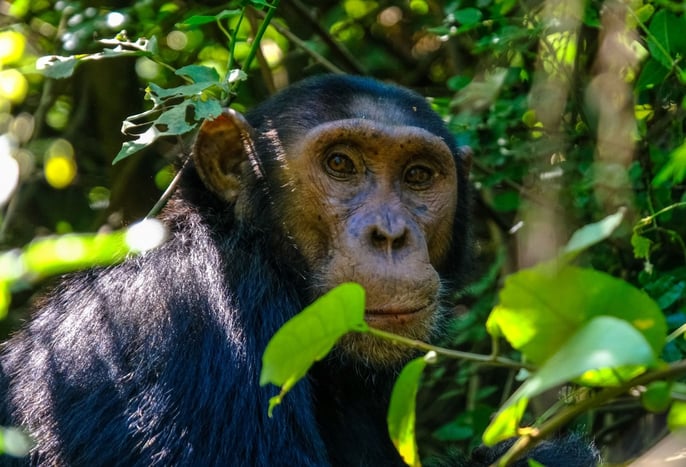
6. Scale
In addition to the project puzzle pieces listed above required to build a successful project, scale is needed to make an impact. To scale a project, the following 3 components are considered: (1) geographical components (land is required), (2) organisational capacity (people and capabilities are needed), and (3) capital (funding and investment into the project expansion is required). With the current strong established networks in Uganda and the very skilled project team, the Uganda reforestation project and its benefits can be scaled with the right resources.













